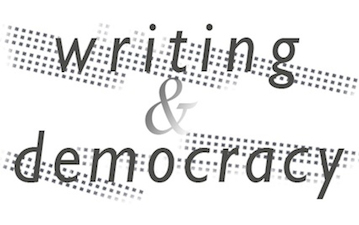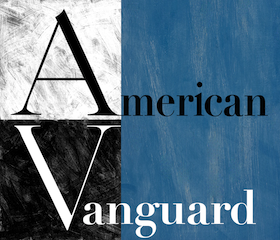Profile: Greil Marcus / Ashawnta Jackson
In a recent interview with Columbus Alive, writer and Riggio Honors Program: Writing and Democracy faculty member Greil Marcus had this to say about how he approaches music writing, “I’m really more interested in how does a performer or just a song develop a language that’s different, and how do we learn that language? How do we respond to it?” This idea, that music has a language, a specific and important language is one that’s worth exploring. The sounds of blues guitar or the thumping bass of electronica are all speaking not just the language of beats and rhythms, but of the cultures that create them. Music, like writing, is an avenue that gives voice to people who might otherwise not have their voices heard. This connection between the two is one of the reasons Marcus’ work aligns so well with that of the Riggio Program.
One of the main goals of the Riggio Program is develop our writing while at the same time, developing a writing community. Extending this idea of community to the musical world isn’t hard. It’s there already. It’s the bodies moving in sync to the drum beat; it’s the emotion felt among the crowd when hearing the right note played in just the right way at just the right time; it’s the song that represents a movement, a call to arms, a salve; it’s the deviation from the norm in the development of a genre, music creates community all the time. A piece of music can connect us to one another in ways so similar to the ways that literature does. It provides a common language for understanding our world, a rhythm for our experiences. It’s not just that music It’s also very simple to connect this to democracy, the other headline item in the Riggio program.
Music has often played a role in democratic action. It’s not just the soundtrack for revolutionary acts, but it’s often the vehicle in which these acts are performed. The folk groups who sang about freedom, the soul singers who told about the change that was coming, the hip-hop poets telling the truths of their neighborhoods, of their lives through their words are all a part of the democratic pulse of music. Folk, soul, rock, hip-hop all speak to particular experiences, particular moments in our histories. The civil rights movement marched with the beat of traditional hymns; anti-war activists took up guitars along with placards; punk found the disaffected, the outcasts and gave them a family. These are the communities that have mattered in my life and undoubtedly in the lives of so many others. I hold on to John Coltrane records and dogeared copies of James Baldwin. I’m just as likely to recite Marvin Gaye as am Langston Hughes. I hear the history of this country in the music collected in Harry Smith’s anthology, history that is like mine, different from mine, but still part of mine. There’s a commonality among these arts, the way that they speak to who we are as a nation, our past and our future.
Marcus talks about this idea in his book The Old, Weird America, the concept of creating music in which “certain bedrock strains of American cultural language were retrieved and reinvented.” Although this book is focused on Bob Dylan’s work, I think this idea applies broadly to not only many musical styles, but to the very idea of the Riggio Program. Here, we are constantly working to contribute to and redefine our cultural vocabulary. We struggle to place the words in just the right order, with just the right emotion, to speak to a larger truth. We argue and craft. We write and rewrite. Page after page, we are trying to create the lexicon for our own cultural experiences. We wield words like instruments to create stories, to speak a new language.
Read Greil Marcus’s “A Trip to Hibbing High” and his reflection on The Riggio Honors Program: Writing & Democracy.
Ashawnta Jackson is a perpetual student who occasionally tries her hand at the literary arts.



